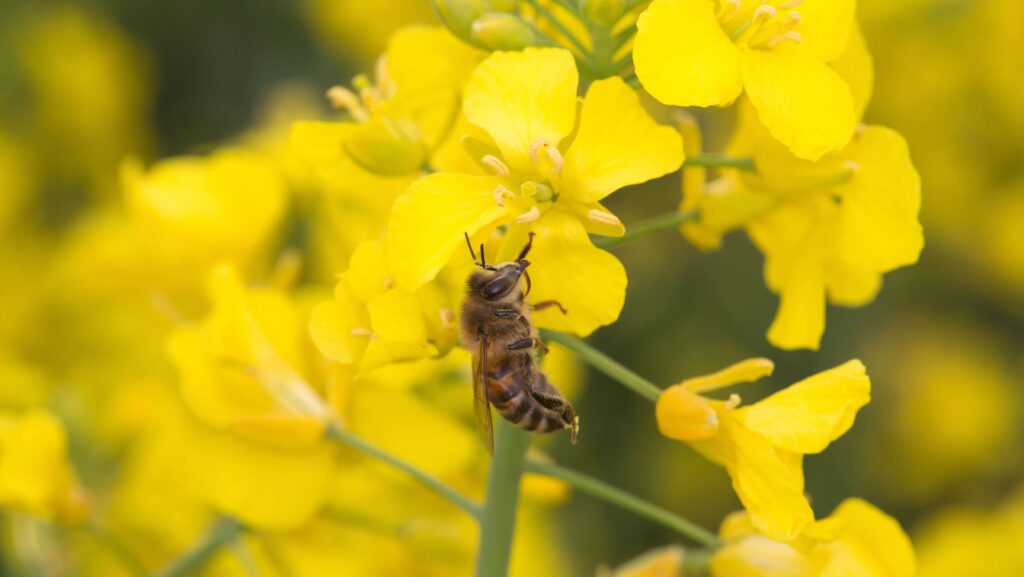Beekeeper bemoans collapse of OSR acreage in the UK
 © Tim Scrivener
© Tim Scrivener Honeybee colonies are suffering from an early-spring pollen shortage in the farming landscape due to shortages of flowering plants such as oilseed rape, with some colonies facing starvation, say beekeepers.
Chris Manton, a bee farmer based in Brackley, Northamptonshire, produces honey from 1,500 hives under the Beekeeper Honey brand.
He told Farmers Weekly that poor weather and the declining acreage of oilseed rape is causing starvation in bee colonies this spring.
See also: Shrinking UK rapeseed area increases reliance on imports
“There is less food for the bees in the spring and part of that is farmers are growing less oilseed rape because of the risk of cabbage stem flea beetle to crops, although the weather conditions haven’t helped,” he said.
“Bees that are close to OSR do better than those that are nowhere near them. It just makes it harder to get the bees off to a good start without the forage.”
One thing worse than neonicotinoids-drenched OSR fields is….NO OSR fields#bringbackOSR pic.twitter.com/rTZCk63wLd
— Chris Manton (@ElmTreeBees) April 21, 2024
Mr Manton said bee hives located near OSR crops thrive much more than those next to grass or cereal fields.
“There is no nectar and pollen in wheat and grass. The OSR does make a difference; it’s such an attractive plant for bees,” he explained.
“You can see the bees working in the OSR fields and they come back yellow and you can smell it in the hives. But if you go to another apiary that is not near OSR crops, the bees are practically starving.”
Bees’ diets supplemented
This spring, Mr Manton has had to supplement honey bees’ diets with sugar and water to make up the deficit.
He said he did not want to be drawn into the argument over whether the ban on neonicotinoid seed dressings for OSR crops, which was introduced in the UK and EU in December 2013 due to their link with a decline in bees, has been good or bad overall.
Joe Stanley, head of sustainable farming at the GWCT Allerton Project, said a 2016 project in its mixed farming landscape found that oilseed rape was the third most common type of pollen found on solitary bees, behind maple trees and other fruit trees.
“OSR is an incredibly important food source [for bees], but nobody in our area is growing it any more, including ourselves.
“We persevered with it and finally had to give up last year after another total crop failure,” said Mr Stanley.
He highlighted several unintended consequences of the neonics ban, which has resulted in British farmers growing less OSR.
These included an increase in OSR imports (often grown with neonics), increased use of pyrethroids, less forage and habitat for reed buntings, and the loss of a profitable break crop for farmers.
BBKA view
Diane Drinkwater, chairwoman of the British Beekeepers Association (BBKA), said: “The BBKA recognises the current pressures on the UK farming industry and understands the need to guarantee crop yields for the future.
“However, the association’s position on the use of neonicotinoid pesticides is informed by the current scientific evidence regarding their effects on honeybees, and we continue to have concerns about the effect of banned pesticides on pollinators and the wider ecology.”

